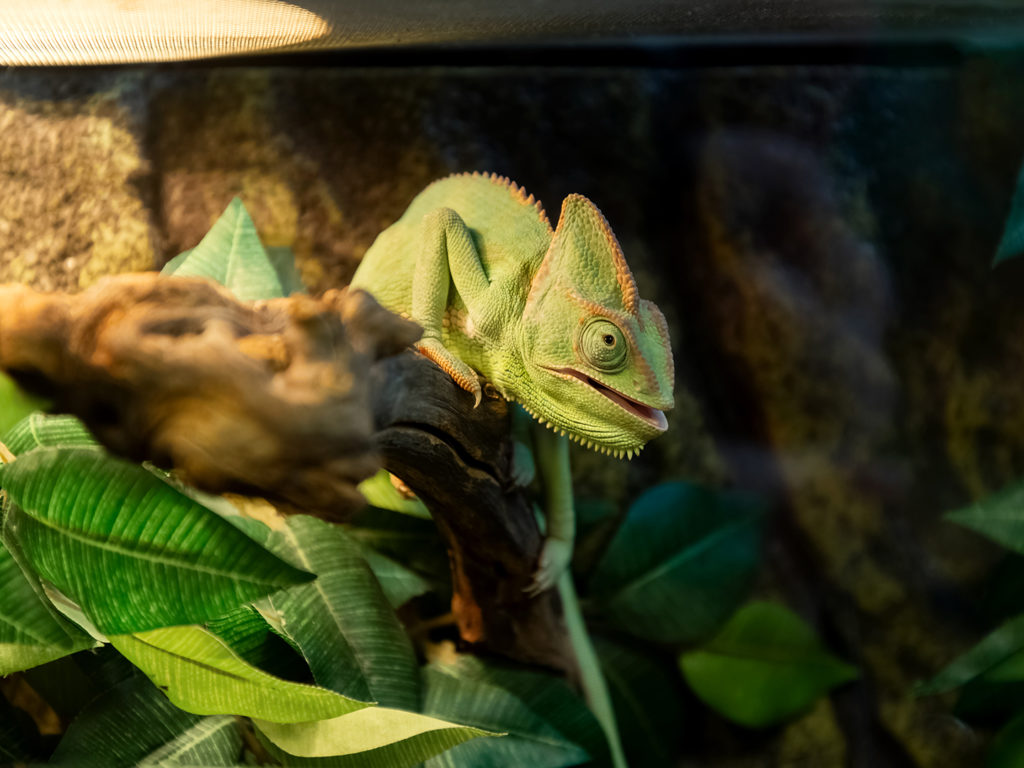No More Creepy Crawlies: Keep Reptiles Safe From Parasites

Household chores are an important, but often looked, part of our daily lives.
For our reptilian friends, though, having a safe and tidy environment is one of the best prevention methods against parasitic infections, according to Dr. Ashley Navarrette, a clinical assistant professor at the Texas A&M College of Veterinary Medicine & Biomedical Sciences.
Navarrette says that reptiles living in unsanitary environments are at a greater risk of contracting intestinal parasites, as these diseases are most often transmitted via the fecal-oral route. Typically, this is seen as a reptile ingesting contaminated eggs, insects, or other materials found in fecal material.
Parasite transmission also has been known to occur through wounds in a reptile’s skin.
Most captive reptiles get parasites from contact with other reptiles. This means it is imperative that owners are diligent in having veterinarian screenings of new reptiles entering the home, in addition to maintaining a clean environment for them to live in.
“So many disease processes can be prevented by proper husbandry,” Navarrette said.
Because reptile owners are not able to actually see many of the microscopic intestinal parasites that veterinarians are concerned with, it is important that owners are able to spot tell-tale signs of parasitic infections.
While clinical signs tend to vary from parasite to parasite, common symptoms are regurgitation, weight loss, diarrhea, bloating, and anorexia.
“If your reptile is suspected to have intestinal parasites, do not wait long to see your veterinarian,” Navarrette said. “Often, once reptiles start showing clinical signs, the disease is pretty advanced.”
In addition to a clean environment, another preventative measure owners can take is feeding their reptiles an appropriate diet. When an under-nourished animal experiences other health concerns, they tend to suffer more than those well fed because of their lack of reserves, potentially leading to an increased mortality risk.
Even if owners do not believe their reptile has a parasitic infection, Navarrette recommends that reptiles have a fecal examination by a veterinarian every six to 12 months as a preventative step.
Cleaning up after our pets may not always be the most of entertaining of chores, but for a reptile, it is one of the easiest ways to keep them safe from parasites or other diseases. The simple steps of proper cage management and nutrition will help our reptilian friends live long and healthy lives.
Pet Talk is a service of the College of Veterinary Medicine & Biomedical Sciences, Texas A&M University. Stories can be viewed on the web at vetmed.tamu.edu/news/pet-talk. Suggestions for future topics may be directed to editor@cvm.tamu.edu.


